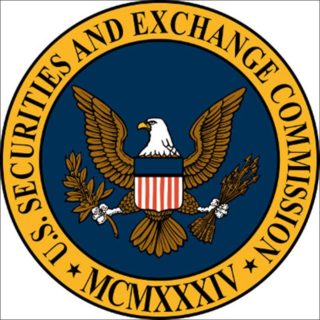Health In Tech Partners with Verdegard Administrators to Elevate TPA Services Through eDIYBS
Health In Tech Teams Up with Verdegard Administrators Health In Tech, an Insurtech platform that utilizes advanced AI technology, has announced a new...
3 min read
 Kevin LaCroix
:
May 30, 2025 11:44:39 AM
Kevin LaCroix
:
May 30, 2025 11:44:39 AM


Among the many executive orders launched at the outset of the current Trump administration was the January 23, 2025 Executive Order that declared the administration’s commitment to maintaining the U.S. at the “forefront of artificial intelligence (AI) innovation.” The Executive Order set out the administration’s commitment to removing policies and directives that “act as barriers to American AI innovation.”
The Executive Order meant a variety of things when it referred to removing barriers, and the statement does at least raise the question about what the administration’s – and in particular, the SEC’s – enforcement approach to AI will be, if the goal is to remove barriers. As discussed below, there are signs to suggest that the administration will continue to monitor and address AI-related misrepresentations, notwithstanding its commitment to removing barriers to AI innovation.
Readers will recall that during the Biden administration, then-SEC Chair Gary Gensler had publicly called for vigilance and scrutiny with respect to so-called “AI-washing” – that is, companies’ overstatement of their AI-related capabilities and prospects. Under Gensler, the SEC pursued a number of AI-related enforcement actions (for example, here). Paul Atkins has now assumed the role of SEC Chair under the new Trump Administration, and one of the questions is whether the SEC will take a different approach to AI-related enforcement, particularly in light of the Trump administration’s commitment to removing barriers to AI innovation.
A May 12, 2025, memo from the Weil law firm provides at least part of the answer to this question. The memo, entitled “Recent SEC and DOJ Enforcement Actions and Charges Signal that AI-Washing is Firmly Within the Crosshairs of the Trump Administration” (here), identifies and describes two AI-related enforcement actions initiated under the Trump Administration. One of the two matters discussed is the civil action and parallel criminal complaint launched against Albert Saniger, CEO of Nate, Inc., which I discussed in a prior post (here).
The memo concludes by saying that the two recent actions, as well as the accompanying statements by DOJ and SEC officials, “seem to demonstrate that this administration views AI-washing as a significant threat to U.S. innovation in the field of AI, by chilling investments in, and diverting funding away from, legitimate companies in the space, and suggest that the SEC and DOJ will continue to scrutinize AI-related disclosures made by market participants.”
The conclusion that the administration will continue to watch AI-related disclosures is underscored by an SEC official’s statements at a recent conference. As reported in a May 15, 2025, Law360 article (here), an enforcement attorney working on the SEC’s newly formed cybersecurity and emerging technologies unit, speaking at a conference organized by Securities Docket, reaffirmed that the agency is focused on AI-related misrepresentations. The attorney is quoted as saying that “Overall, I would say we have an overarching focus on rooting out those seeking to misuse this new technology and to harm investors.”
In her remarks, the SEC attorney elaborated on the kinds of things the agency is reviewing. She said that among other things, the agency’s areas of interest include the use of AI in predictive data analytics, AI-based trading algorithms, the use of chatbots and the use of artificial intelligence to provide investment advice. The attorney said that “We’re looking at whether there’s transparency around the technology, whether it’s described accurately, whether there’s responsible communications to customers,” adding that “It’s easy to use a term like ‘AI,’ but is it automation of code or is it actually AI?”
The enforcement agencies’ recent actions, as reflected in the two matters discussed in the law firm memo to which I linked above, suggest the agency will continue to pursue AI-related enforcement actions, a conclusion underscored by the SEC attorney’s recent comments.
In thinking about the potential liability risks associated with AI, it is important to consider not just the potential regulatory and enforcement exposure but also to consider the possibility of corporate and securities litigation relating to AI. There have been a number of AI-related securities class action lawsuits filed in recent months; according to the Stanford Law School Securities Class Action Clearinghouse (here), there have been five AI-related securities suits filed in 2025, after 13 were filed in 2024.
The AI-related lawsuits have included not only securities class action lawsuits, but also have included shareholder derivative lawsuits. For example, on April 30, 2025, a plaintiff shareholder filed a derivative lawsuit in the Southern District of New York against certain directors and officers of the software firm, Sprinklr. A copy of the complaint can be found here. The complaint essentially alleges AI-washing, contending that the company overstated its potential benefits from its adopting of AI tools.
A May 16, 2025 Corporate Counsel article about the new Sprinklr lawsuit (here) quotes Geoffrey Fehling of the Hunton Andrews Kurth law firm as saying that plaintiffs’ attorneys hungry to bring more cases will be seizing on instances where companies’ high hopes for AI failed to materialize, adding that “More reliance on AI leads to more representations about the usage, benefits, scale and impact of the technology that can be challenged later by investors or scrutinized by regulators.”
The bottom line is it appears that AI will remain as a hot topic in the D&O liability and insurance arena for the foreseeable future. All signs suggest that AI related disclosures and representations will continue to be the subject of regulatory scrutiny and enforcement, and that AI-related corporate and securities litigation will continue as well.

Health In Tech Teams Up with Verdegard Administrators Health In Tech, an Insurtech platform that utilizes advanced AI technology, has announced a new...

Waiting for Federal AI Guidelines In recent discussions, most legal and insurance industry experts have pointed out that federal guidelines for...

SehaTech Secures $1.1 Million in Seed Funding Egyptian insurtech company SehaTech recently announced it has successfully raised $1.1 million in a...